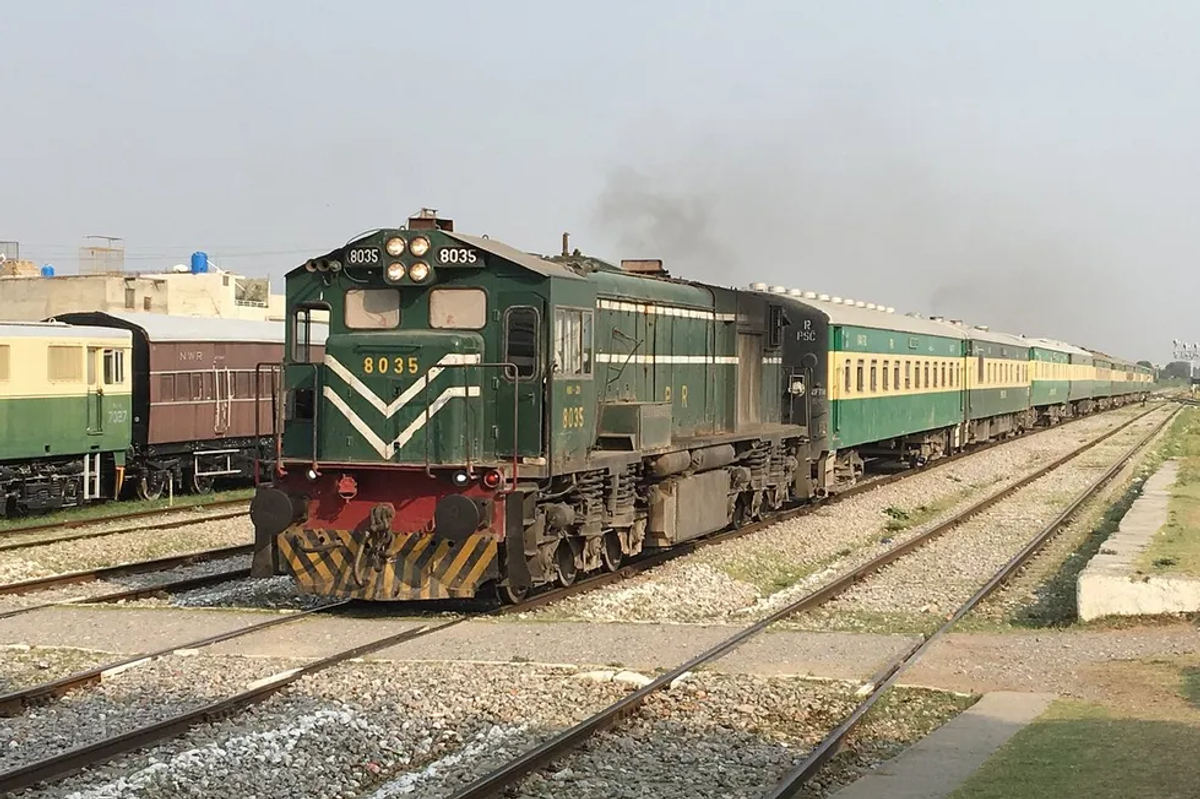Pakistan struggles with rail safety as 125 freight trains derailed since 2021
Ministry attributes accidents to factors including human negligence, track and mechanical faults, signaling failures, sabotage as well as natural causes

Javed Hussain
Correspondent
I have almost 20 years of experience in print, radio, and TV media. I started my career with "Daily Jang" after which I got the opportunity to work in FM 103, Radio Pakistan, News One, Ab Tak News, Dawn News TV, Dunya News, 92 News and regional channels Rohi TV, Apna Channel and Sach TV where I worked and gained experience in different areas of all three mediums. My journey from reporting to news anchor in these organisations was excellent. Now, I am working as a correspondent with Nukta in Islamabad, where I get the opportunity of in-depth journalism and storytelling while I am now covering parliamentary affairs, politics, and technology.

File photo of a Pakistan Railways train in motion on an aging track.
Photo via X
Pakistan’s state-run railway network has reported 125 freight train derailments over the past three years, a figure the government attributes largely to human error and deteriorating infrastructure, according to an official report submitted to parliament.
The report, submitted by Federal Minister for Railways Muhammad Hanif Abbasi in response to a question by MNA Abrar Ahmed, revealed that between July 1, 2021 and June 30, 2024, Pakistan Railways operated 6,049 freight trains - of which 125, or 0.70 percent, were involved in derailment incidents.
The ministry’s findings identified a range of causes behind the accidents, including human negligence, track defects, mechanical failures in rolling stock, signaling issues, sabotage, natural disasters, and road-user negligence at level crossings.
Human error and track decay at core
Human error accounted for roughly 43 percent of all derailments - making it the single biggest contributor. Operational staff fatigue, insufficient training, and procedural lapses were frequently cited as direct causes in these cases.
Another major factor was the poor condition of the railway infrastructure. Many track sections have not undergone complete rehabilitation in decades, resulting in joint failures, cracks, and weakened track beds. The report noted that such deterioration poses an ongoing risk to freight movement and operational safety.
Mechanical faults in locomotives and wagons also contributed significantly to derailments, largely due to outdated machinery and limited maintenance. Signal failures and the continued reliance on manual interlocking systems - inefficient and incompatible with modern electronic safety standards - further compounded the risks.
Sabotage, flooding, and negligence at unprotected level crossings were also among the recorded causes, while some incidents were linked to lapses by contractors during maintenance work.
Reforms underway but experts call for modernization
To curb future accidents, the Ministry of Railways has launched a series of safety and reform measures. These include regular refresher courses for operational staff at the Pakistan Railways Academy, enhanced field inspections by senior officers, and the issuance of monthly Safety Bulletins and “Rule of the Month” guidelines to reinforce awareness.
Out of 536 unmanned or high-risk level crossings, 168 have been upgraded so far, with the remainder to be improved in coordination with provincial authorities. Periodic safety workshops and awareness seminars are also being held at divisional levels, while disciplinary actions have been taken against negligent employees.
However, rail experts caution that administrative steps alone will not address the deeper structural flaws. They stress the urgent need for large-scale investments in digital interlocking systems, automated safety alerts, comprehensive track rehabilitation, and modern load-monitoring technology.
Analysts further note that despite the ministry’s progress in training and safety compliance, Pakistan Railways continues to struggle with aging tracks, obsolete signaling infrastructure, and outdated rolling stock.
Achieving sustainable safety, they argue, will require not just reforms - but a complete technological overhaul and a culture of accountability within the institution.










Comments
See what people are discussing